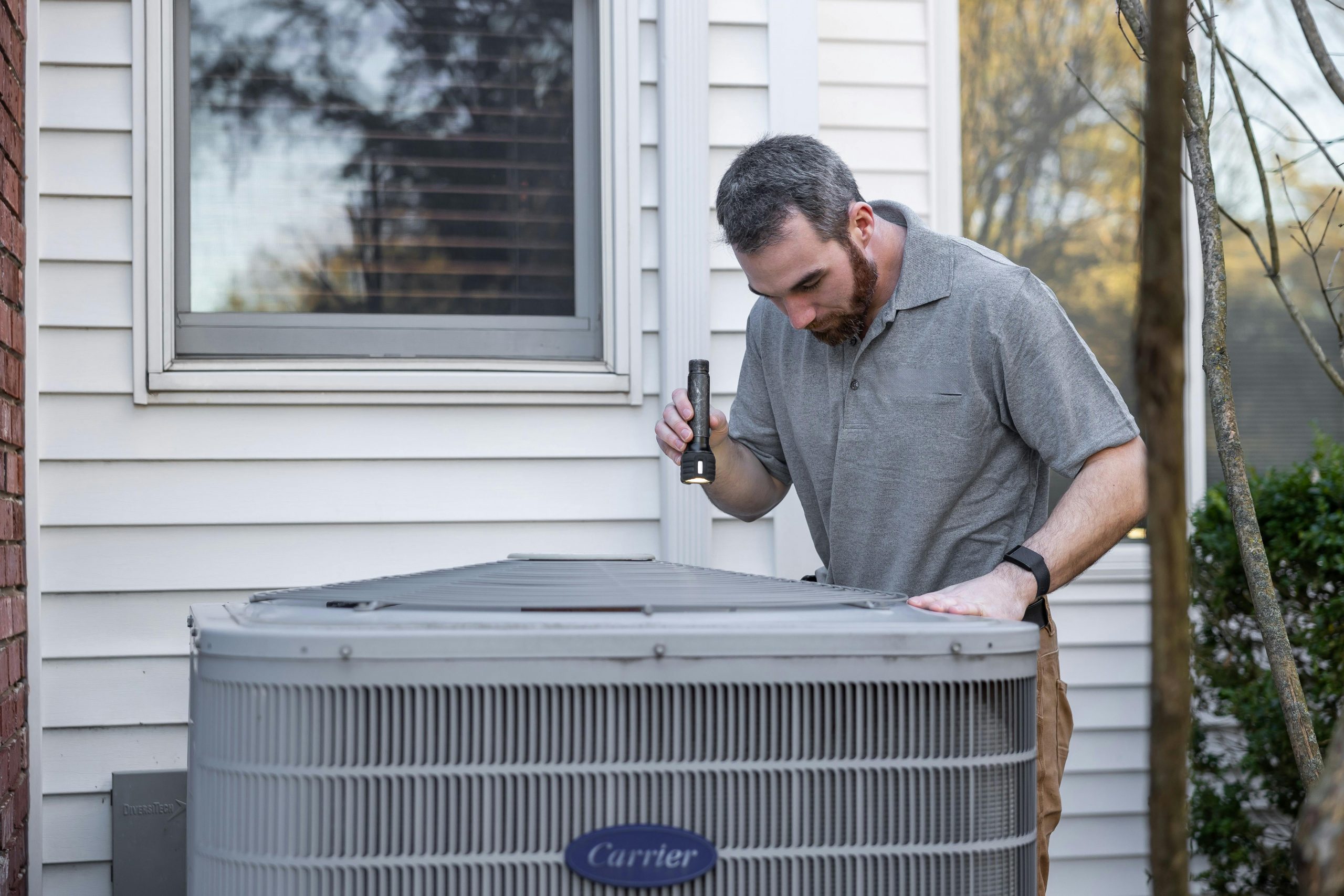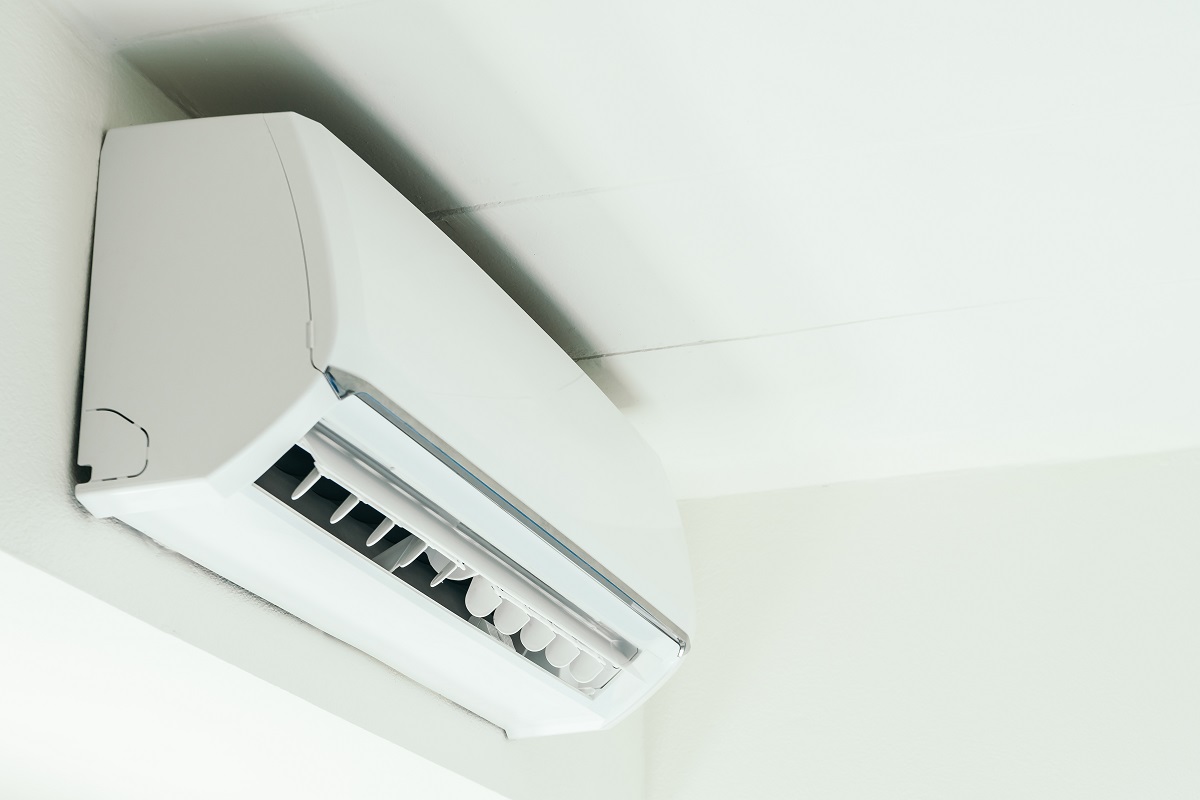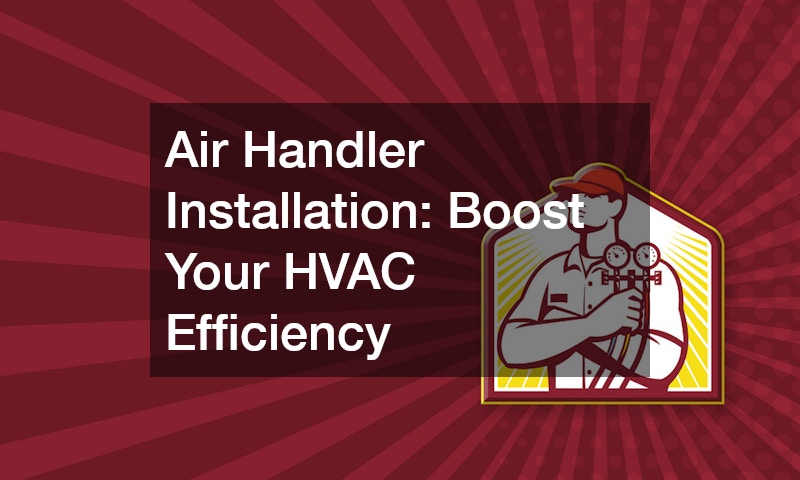Your air conditioner is more than just a machine that keeps your home cool—it’s a critical part of your HVAC system. While most people focus on temperature and airflow, many overlook the sounds their AC makes. Strange noises can indicate small issues that, if ignored, may lead to bigger problems like decreased efficiency or costly repairs. In this guide, we’ll explore common air conditioner sounds, what they mean, and practical fixes you can try before calling a professional.
Why Are Air Conditioner Sounds Important?
Air conditioners are designed to operate quietly, but a little noise is normal. Humming, gentle fan sounds, or a soft click when the unit turns on usually aren’t a concern. However, loud or unusual noises often signal a problem. Listening to your AC can help you:
- Detect small problems before they escalate
- Improve HVAC efficiency
- Extend the lifespan of your system
- Avoid costly emergency repairs
How Do I Know if My AC Sound Is Normal?
Most modern HVAC systems operate with minimal noise. Normal sounds include:
- Soft humming from the compressor
- Gentle airflow from vents
- Slight clicking when the unit turns on or off
You should be concerned when you hear:
- Loud banging or clanking
- Continuous squealing or screeching
- Bubbling, gurgling, or hissing
- Vibrations or rattling that weren’t there before
Banging or Clanking Sounds: Is Something Loose?
A loud bang or clank from your air conditioner is one of the most obvious warning signs that something inside your HVAC system is off. These sounds are usually caused by loose or broken components that are striking other parts of the unit. Common culprits include:
- Loose screws or panels: Panels on your indoor or outdoor unit can loosen over time due to vibrations. Even a single loose screw can produce a loud banging sound when the system is running.
- A broken fan blade: Outdoor units have metal or plastic fan blades that can warp, crack, or break. When they hit the casing or other components, they create sharp clanks.
- Debris stuck in the unit: Leaves, sticks, or other foreign objects can get caught in the fan or motor, causing repetitive banging whenever the AC operates.
DIY Fixes:
- Turn off power to your AC before inspecting—it’s essential for safety.
- Tighten loose screws or panels using a screwdriver, making sure all components are secure.
- Remove debris from the fan and surrounding areas. A small brush or vacuum can help clean difficult spots.
- Observe the unit for a few minutes after restarting to ensure the noise is gone.
When to Call a Professional:
If the noise persists after basic cleaning and tightening, or if you suspect a broken fan blade, it’s time to call a licensed technician. Ignoring these noises can lead to severe damage to the motor, fan, or other internal components, resulting in expensive repairs.
Squealing or Screeching: Could It Be the Belt?
High-pitched squealing or screeching usually indicates a problem with moving parts like the blower motor or fan belt. Over time, belts can become worn, stretched, or misaligned, producing loud noises.
Symptoms to Watch For:
- A continuous squealing sound as soon as the AC starts
- Intermittent screeching that starts and stops randomly
- Reduced airflow from vents, indicating the fan is struggling
DIY Fixes:
- Lubricate motor bearings if accessible; this can reduce friction and noise.
- Check belt alignment and tension, tightening or repositioning as necessary.
- Make sure the fan blades spin freely and aren’t obstructed.
Professional Help:
If the noise continues after lubrication or belt adjustments, a technician may need to replace the belt or inspect the motor. Ignoring squealing sounds can lead to motor overheating and eventual failure.
Hissing or Bubbling: Is Refrigerant Leaking?
Video Source
Hissing or bubbling sounds from your AC often signal a refrigerant leak or abnormal pressure in the system. Since refrigerant is essential for cooling, even a small leak can reduce efficiency and potentially damage your unit over time.
Signs of a Problem:
- Warm air coming from vents despite the AC running
- Ice forming on the evaporator coil
- Noticeably higher energy bills
DIY Checks:
- Listen carefully along refrigerant lines for unusual hissing or bubbling noises
- Check copper lines and connections for oil residue, which can indicate a leak
- Keep the area around the unit clear of debris
- Never attempt to add refrigerant yourself, as it is both illegal and dangerous
Professional Help:
A licensed HVAC technician can locate and repair refrigerant leaks using specialized methods:
- Detecting leaks with electronic sensors
- Applying soapy solutions to spot escaping refrigerant
- Pressurizing the system with nitrogen to pinpoint leaks that are otherwise difficult to find
- Adding dye to reveal hidden leaks under specialized lighting
Early professional intervention ensures your AC operates efficiently, prevents costly damage, and avoids environmental harm.
Rattling or Vibrating: Is Your Unit Out of Alignment?
Rattling noises often come from misaligned or loose components. Even minor vibrations can cause wear and tear if not addressed promptly.
Common Causes:
- Loose screws or panels
- Debris inside the unit
- Outdoor unit not level or securely mounted
DIY Fixes:
- Tighten all screws and secure panels
- Remove any debris inside and around the unit
- Make sure the unit sits on a stable, level surface to reduce vibration
Professional Help:
If rattling continues, a technician may need to inspect fan blades, mounting brackets, or internal components. Persistent vibrations can reduce system lifespan and efficiency.
Clicking Sounds: Normal or a Warning?
Soft clicking is normal when the AC turns on or off, caused by relays or thermostats. However, repeated rapid clicking signals electrical issues that require attention.
Possible Causes:
- Electrical problems
- Faulty capacitors
- Control board malfunctions
DIY Checks:
- Make sure the thermostat is functioning correctly
- Inspect visible wiring for looseness or damage (only if comfortable and safe)
Professional Help:
Frequent or irregular clicking requires a licensed technician to prevent damage or fire hazards.
Whistling Noises: Is Airflow Restricted?
Whistling noises usually result from restricted airflow, which can reduce comfort and strain the system.
Causes to Consider:
- Dirty or clogged air filters
- Closed or obstructed vents
- Leaks or gaps in ductwork
DIY Fixes:
- Replace filters every 1–3 months
- Open vents that may be blocked
- Inspect ducts for visible leaks
Professional Help:
Persistent whistling may require duct sealing or professional airflow testing to restore efficiency.
Rumbling or Deep Sounds: Could It Be the Compressor?
Deep rumbling usually signals trouble with the compressor, the heart of your AC system. Ignoring these sounds can lead to system-wide failure.
Signs of Compressor Trouble:
- Long-lasting rumbling during operation
- AC struggling to cool your home
- Noticeable increase in energy bills
DIY Checks:
- Ensure the outdoor unit is level
- Remove debris obstructing the fan or compressor area
Professional Help:
Compressor repairs are complex and costly. A technician should inspect early signs of trouble to prevent total system failure.
How Can I Prevent My AC from Making Strange Noises?

Prevention is better than repair. Regular maintenance reduces noise, improves efficiency, and prolongs your AC’s lifespan.
Maintenance Tips:
- Schedule annual professional HVAC inspections
- Replace air filters every 1–3 months
- Keep outdoor units free of leaves and debris
- Ensure panels and screws are tight
- Monitor refrigerant levels and overall system pressure
When Should I Call a Professional?
Call a technician immediately if you notice:
- Loud banging or clanking
- Persistent squealing
- Hissing or bubbling from refrigerant lines
- Repeated electrical clicking
- Rumbling from the compressor
Early intervention saves money and prevents breakdowns during peak summer heat.
Quick Tips for DIY Noise Checks
Some minor issues can be fixed at home. Check:
- Dirty or clogged filters
- Loose panels and screws
- Debris around the outdoor unit
- Blocked vents
- Unusual operational patterns
These simple steps can catch problems before they escalate.
How Noise Relates to HVAC Efficiency
Unusual air conditioner sounds aren’t just annoying—they often indicate that your HVAC system is working harder than it should. Every component in your AC relies on smooth operation, and when something is off, the system loses efficiency. Understanding how noise affects performance can help you save energy, avoid costly repairs, and maintain comfort.
Increased Energy Consumption
When components are loose, worn, or obstructed, your AC has to work harder to reach the desired temperature. For example:
- A squealing blower motor uses extra electricity due to friction
- A misaligned fan reduces airflow, making the compressor run longer
Over time, this can increase your utility bills, sometimes by 10–30%, depending on how long the issue goes untreated.
Inconsistent Temperature and Comfort
Noisy HVAC systems often struggle to distribute air evenly:
- Rattling ducts can leak air, causing uneven cooling in different rooms
- A struggling compressor may fail to maintain the set temperature
This means certain areas of your home might feel warmer or cooler than others, making your living space less comfortable.
Increased Risk of Breakdowns
Noise is often an early warning sign of component stress. Ignoring these sounds can lead to:
- Burnt-out motors
- Blower failures
- Refrigerant leaks
- Broken fan blades
Small problems, if left unchecked, can quickly escalate into major system failures, requiring expensive repairs or even full replacement.
Reduced Lifespan of Components
Every abnormal sound represents extra strain on parts that are designed to operate smoothly. Constant friction, vibration, or misalignment wears down critical components faster. By addressing unusual noises early, you can extend the life of your HVAC system and avoid premature replacement.
Common Questions About Air Conditioner Sounds
Q: Are all AC noises a sign of a problem?
A: No, soft humming and gentle clicks are normal. Loud, irregular, or persistent sounds are warning signs.
Q: Can I fix AC noises myself?
A: Minor issues like dirty filters or loose panels are DIY-friendly, but mechanical or electrical problems require a licensed technician.
Q: How often should I schedule HVAC maintenance?
A: At least once a year. Older systems may benefit from twice-yearly checkups.
Q: Will ignoring noises shorten my AC’s lifespan?
A: Yes. Persistent noises indicate stress on components, potentially causing early system failure.
Q: Can unusual sounds affect energy bills?
A: Definitely. Struggling components use more electricity, raising costs over time.
Final Thoughts: Listen Before It’s Too Late
Air conditioner sounds are more than background noise—they’re messages from your HVAC system. Recognising which noises are normal and which signal problems can save money, improve efficiency, and keep your home comfortable.
By taking action—whether DIY fixes or professional inspections—you prevent small issues from becoming costly repairs. Don’t wait until a strange sound turns into a full-blown problem. Pay attention, act early, and your HVAC system (and your wallet) will thank you.



